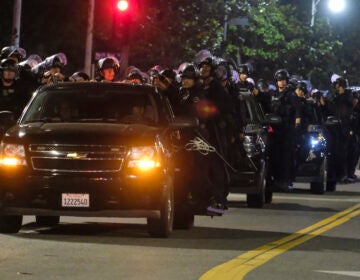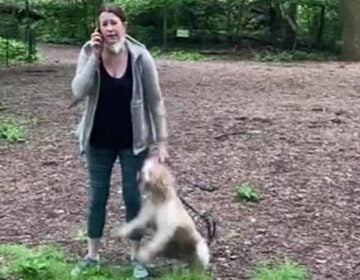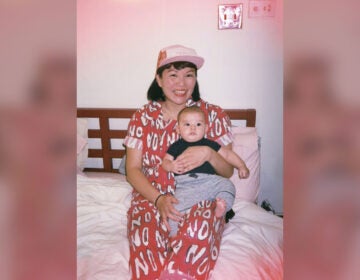Through personal experience, Philly educators teach about racial profiling
In Philadelphia, panel members tell their stories and plan to collect more accounts of racial profiling for a book.
Listen 3:37-

Four Philadelphia educators (from left) Will Mega, Ismael Jimenez, Quamiir Trice, and Ben Slater, share their experiences with racial profiling during a workshop at People's Education Center in Germantown. (Emma Lee/WHYY)
-
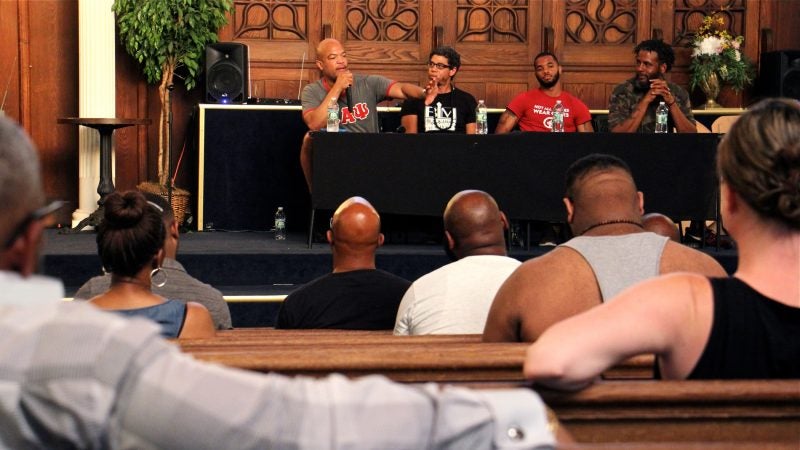
About 45 people attended a racial profiling workshop organized by Will Mega. Panelists included four Philadelphia educators (from left) Mega, Ismael Jimenez, Quamiir Trice, and Ben Slater, who detailed their recent experiences with racial profiling. (Emma Lee/WHYY)
-
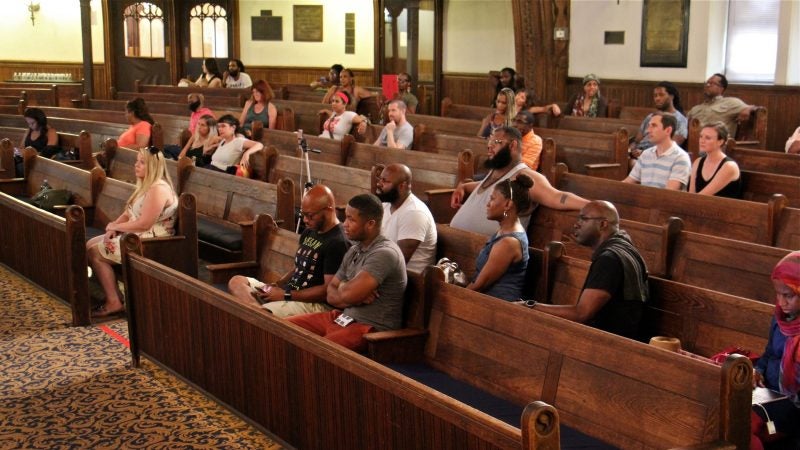
About 45 people attended the racial profiling workshop at the People's Education Center in Germantown. (Emma Lee/WHYY)
Philadelphia police pulled Quamiir Trice over for a broken tail light in North Philly last week. But a routine traffic stop soon escalated into the officer’s decision to search Trice and his car for drugs.
“He grabbed my wrist and said, ‘Get out the car!’ He damn near pulled me out of the car,” said Trice, a Philadelphia public school teacher. “So I grab my phone and start recording, because I’m wondering what’s about to happen.”
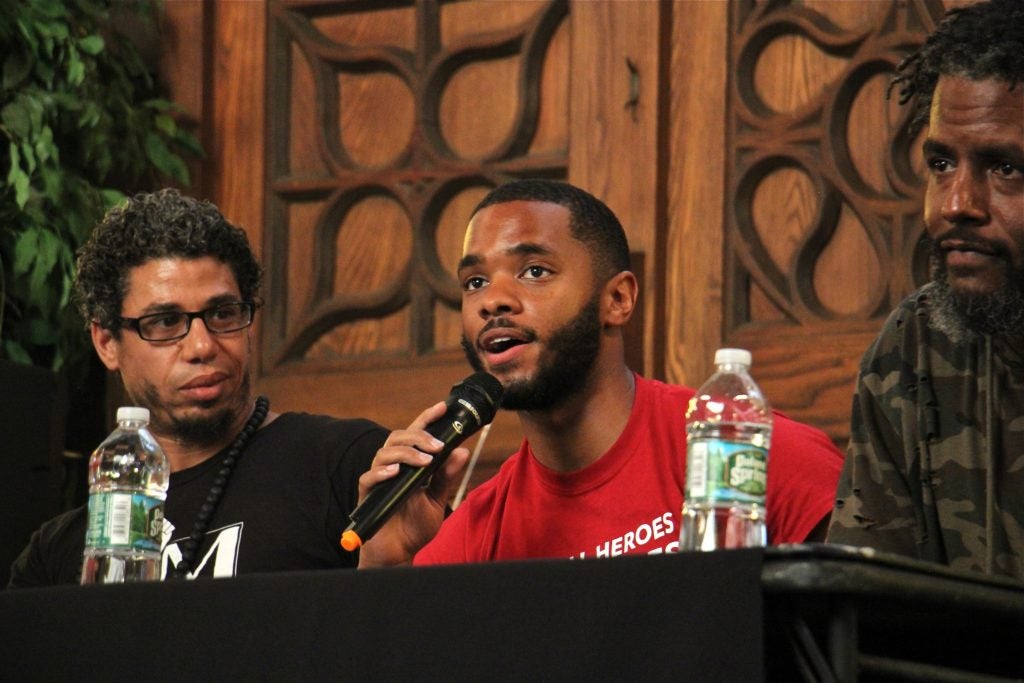
The irony is that, years ago, Trice sold drugs and was arrested as a juvenile. But he turned his life around, graduated from Howard University and became a teacher. The morning of his arrest, he was even featured in an article in the Philadelphia Inquirer.
But what cops saw when they ran his name was Trice’s suspended Washington, D.C. license, which Trice said he knew nothing about because some of his mail was still going to his old D.C. address. They also saw his juvenile rap sheet, which Trice was told had been expunged.
“I just don’t believe that people believe I’m an educator, right?” he said. “I don’t even fit that description.”
No ‘benefit of the doubt’
Trice shared his story at an event organized by other black male educators in Germantown who say they’ve been racially profiled in the past few months.
Management at the Cinemark movie theater in University City called the police on Ismael Jimenez and his wife, Ashley. The couple — along with their four sons and two of their sons’ friends — had gone to see “Jurassic World,” but an incessant beeping noise in the theater made it impossible to hear the film.
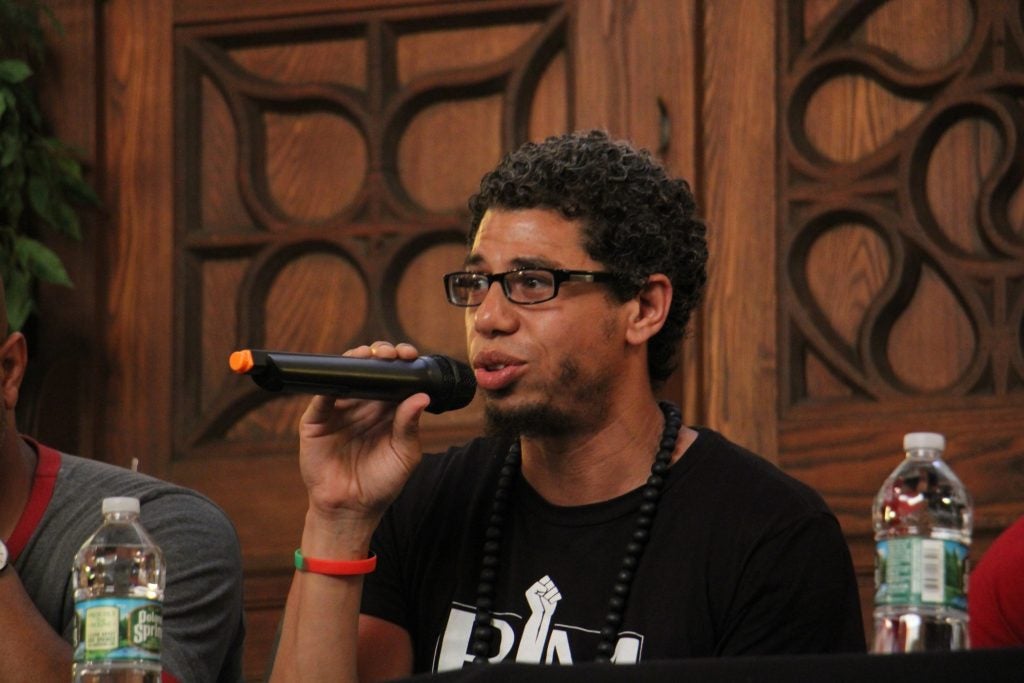
The couple went to the box office to ask for a refund, which they received. But when they tried to re-enter the theater to get their children, management told them the policy was that anybody who received a refund had to leave the premises.
Jimenez, who teaches African-American studies to high-schoolers at Kensington High School for the Creative and Performing Arts, said he could feel how race factored into the situation.
“The benefit of the doubt wasn’t given to us,” he said. “We were legitimately trying to get our kids, and we weren’t trying to get over on them.”
Benjamin Slater, a special-education teacher, was approached by armed security at a Pennsylvania amusement park on Father’s Day.
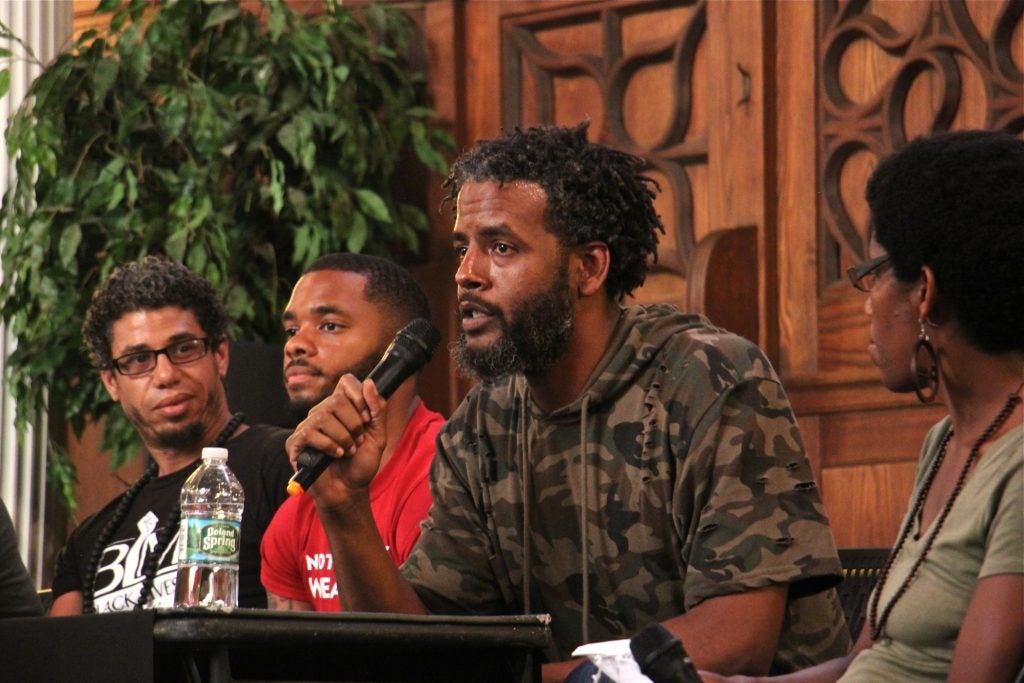
Slater said the officer told him he “fit the profile of someone who was going through bags and purses at Dorney Park.”
Slater was taken to the park’s security office, slapped with a citation for causing a “public inconvenience,” and banned from the park for six months. He has filed a lawsuit against Dorney Park.
School administrator Will Mega, who organized the panel discussion, forced Lowe’s home improvement stores to temporarily suspend the company’s practice of checking receipts at only some of its locations, including the West Philly shore he was shopping in over Memorial Day weekend.
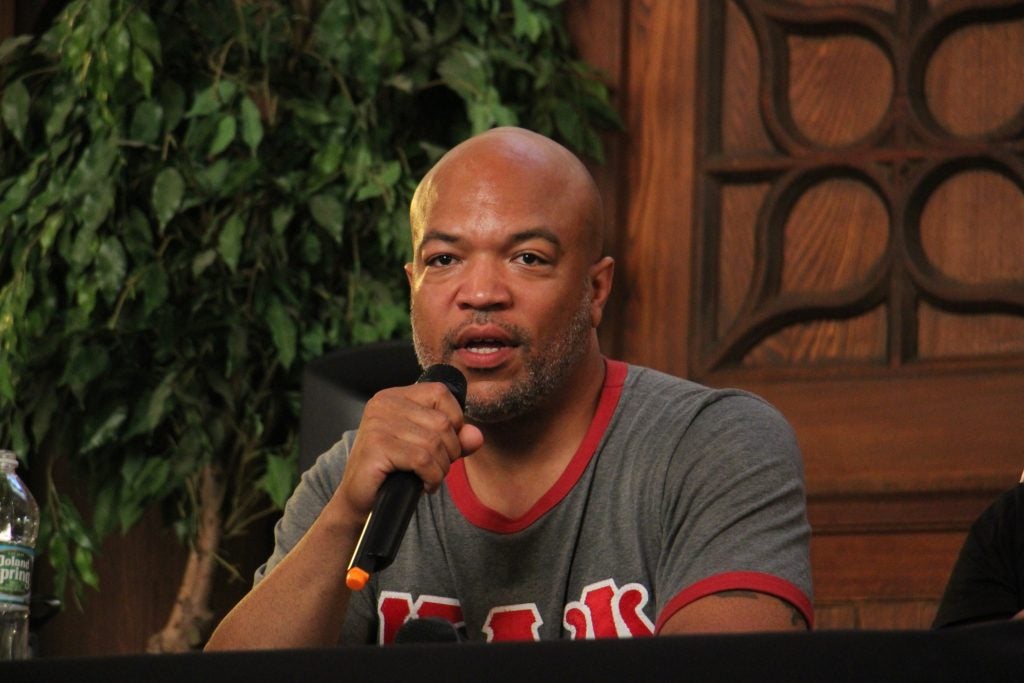
He doesn’t want the issue to be lost in the news cycle, and said he believes the stories can be used as a teachable moment.
“As educators, this is an opportunity not to advocate for ourselves, but to teach the community,” Mega said. “I mean, that’s what we do, teach communities.”
Breaking down stereotypes
All of the panelists recorded their interactions with authorities on their cell phones — a tool that’s proved useful, said audience member Malik Abd-Hadi.
“If the cell phone wasn’t available, these things would be happening in the cloak of darkness,” Abd-Hadi said.
Audience member Max Feldman, who’s white, said he came away with a deeper understanding of the indignities African-Americans can go through on a daily basis.
“I was just moved by the power of all four stories,” said Feldman, a Philadelphia teacher. “You see it online all the time, but it’s also really important to hear people straight from the source and listen to people and trust people.”

For Trice, that was the point — to help build a mindset where people don’t jump to conclusions based on stereotypes.
“I got tattoos,” he said. “A lot of people who you might see commit a crime look just like me. But I think my job is to change the narrative.”
The panelists plan to put together a nationwide anthology of these types of stories. Its working title? “The Book on Racial Profiling.”
Listen to Annette John-Hall and Shai Ben-Yaacov’s NewsWorks Tonight interview below.
WHYY is your source for fact-based, in-depth journalism and information. As a nonprofit organization, we rely on financial support from readers like you. Please give today.



